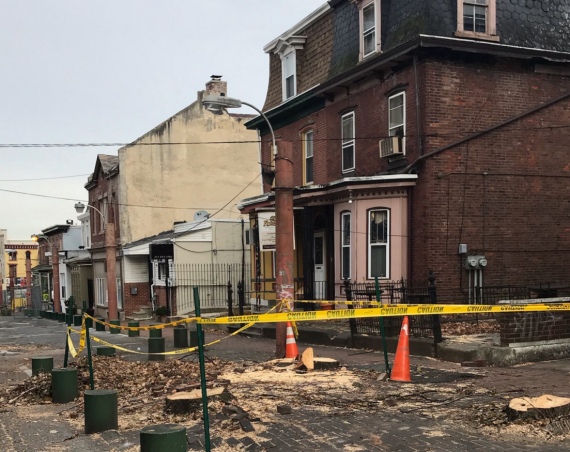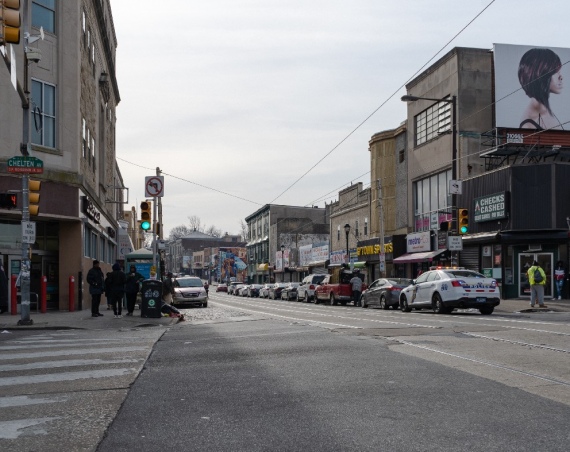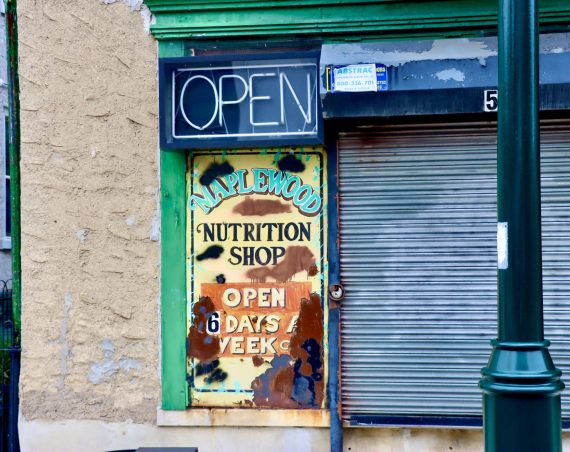In a society that says older adults reach a time where they have “passed their prime,” one woman resisted that notion and strived to prove that there was no “eleventh hour.” Instead, she vowed to “do something outrageous every day.”
Maggie Kuhn worked for the United Presbyterian Church for 25 years, where she held various positions in the New York and Philadelphia branches. But after the church’s mandatory policy forced her into retirement at 65 years old, Kuhn took action. This was in 1970, and during that same year, Kuhn met with other folks with similar experiences and formed what was known as the “Consultation of Older and Younger Adults for Social Change,” better known later as the “Gray Panthers.”
Early in her life, she rejected being either a “nurse or teacher,” which were the two primary career choices offered to women during the 1920s. Though she was an English literature major with minors in French and sociology, Kuhn was interested in social change. She worked at the YWCA in Cleveland for three years, first as a volunteer and then a full-time secretary. The members’ dedication to fighting unfair and unsafe work environments inspired Kuhn for her later work. After leaving Cleveland with her family, she headed to the Germantown YWCA, where she worked in the 1930s.
Ann Doley, a Germantown resident, says that while Kuhn is known for her many contributions to society after age 65, Kuhn is a small piece of a larger significance to the Germantown Y. Doley personally knew Kuhn when she was heading the Gray Panthers in the 70s and 80s. Doley is also an active member of the Friends for the Restoration of the Germantown YWCA. This group seeks to protect and restore the building. She says that while people may not see the building as worthy of “saving,” preservation isn’t only about the building itself.
“It’s really about the culture,” Doley exclaims. “It’s about the story of the people that were in those buildings. It’s much more holistic than just about a building.” She states that Kuhn is a part of that story. Doley recalls reading a passage from Kuhn’s autobiography where Kuhn credits the YWCA for helping to “transform” her. She says that the Y has a rich history of radical women, including Clarice Gamble Herbert, who was the first Black Executive Director of the Germantown YWCA from 1968 to 1979 and is painted on the mural along with Kuhn and other historical Germantown women.
Doley admits that she wishes more folks knew more about Kuhn before her work with the Gray Panthers, specifically at the YWCA in Philadelphia, then in NYC coordinating the YWCA’s USO programs nationwide during WWII.
During her time at the Germantown YWCA, Kuhn offered courses to women that were atypical for the time. Those classes included political awareness, consumer education, marriage, and sexuality. Kuhn was also heavily involved in racial justice efforts, helping to develop interracial and desegregation programs. And after attending the White House Conference on Aging in 1961, she began thinking about ageism.
In a 1989 interview, Kuhn debunks the myth of old age as a “disease.” She says that people should see it as an achievement. Ken Dychtwald, who interviewed Kuhn in 1978, called her views “futuristic,” as they were vastly different from what society thought of older folks during that time.
She used a lot of what she learned in her 40+ years of experience to begin organizing and facilitating discussions and actions around a range of social issues. While the group was started because of discriminatory ageism, they were dedicated to inclusivity for all. Their mission was, and remains, “fundamental social change that would eliminate injustice, discrimination, and oppression in our present society.” They resisted poverty, war, gender-based discrimination, and racism alongside ageism. Some of their first calls to action were demonstrations and protests opposing the Vietnam War — their connection to the younger adults.
In 1971, the group began meeting in a Philadelphia church basement, which served as their home base, to continue their organizing efforts. At this time, they were still going under their former name. But, in 1972, the press referred to the group as the “Gray Panthers,” a spin on the Black Panthers. Kuhn kept the name as someone inspired by the Black Panthers’ efforts. While the Gray Panthers were a nonviolent group, they consistently impacted social change through direct actions.
Kuhn was a small woman, so her assertive and cheery presence surprised some people. West Chester University Professor Anita Foeman recalls being 15-years-old and seeing Kuhn speak at the First United Methodist Church of Germantown. “She marched in there wearing bright colors and her hair pinned up, and she brought all this energy, and it implied that you could really be a vital member of the community at any point in life,” says Foeman. “And I remember thinking then, that’s the kind of old person I want to be.”
Foeman says “adorable” is a word people would probably use to describe Kuhn, but she was really “radical.” The professor uses texts from Kuhn’s autobiography, “No Stone Unturned,” in her classes because she believes Kuhn’s messages about interdependent and intergenerational living are important. Foeman says, “she was so alive, and I wanted my students to hear that–especially in this generation.”
Kuhn was very open about intergenerational living, as it provided a place and purpose for everyone. She used her home on Greene Street as shared housing.
The Panthers gained significant attention by lobbying in various places for different causes, and Kuhn began acquiring national visibility for the Gray Panthers’ work. Throughout the rest of the 70s, Kuhn accepted opportunities to speak at events and television talk shows about the group’s efforts. One of her more popular appearances was when she challenged Johnny Carson about his ‘Aunt Blabby’ skit and how it contributed to the narrow view of how older adults are viewed.
In 1978, one of the group’s most notable lobbying efforts helped amend the Age Discrimination in Employment Act of 1967, which raised made it harder to force people to retire based on age. Their momentum continued in 1980 when they won a class-action lawsuit that impacted how folks who submitted Medicare reimbursements get presented information about their denial. The victory brought better-written communication about decisions and an oral hearing for appeal for those who wanted it.
On April 1, 1995, Philadelphia Mayor Edward G. Rendell declared “Maggie Kuhn Day” to celebrate the Gray Panthers’ 25th anniversary. Kuhn passed away on April 22, a few weeks later. Doley says there was a great connection between the day of Kuhn’s passing on Earth Day. In 1987, Kuhn had a tree planted at Vernon Park in her honor and a plaque for being a “good neighbor.”
Center in the Park is a wellness center for older adults that resides in Vernon Park and “promotes positive aging and fosters community connections for older adults” through services. CIP’s executive director, Reneè Cunningham, says that 27 years after Kuhn’s passing there still aren’t enough efforts to sustain activities and programs for older adults.
She says, “Every year there are more and more funders who are changing their philanthropic focus, and we have seen over the years that many times this means cutting out organizations that serve older adults.” She emphasizes that Philadelphia, specifically CIP, is no exception to this. “Our own Pennsylvania Department of Aging has cut funding to aging services in Philadelphia this year, causing the Area Agency on Aging to cut our funding.”
While Kuhn is often underacknowledged in national history, her work lives on through the people she has influenced, particularly Germantown neighbors and organizations.
Cunningham ends with sentiments about how we can step into Kuhn’s legacy. She says two ways are demanding more affordable housing for older adults and compelling legislators to increase funding for organizations that serve older adults.
She says, “if we really want to honor her legacy, we can value our own aging bodies, resist the common thought to view older people as a group separate from ourselves, and using her own most famous quote, ‘speak your mind, even if your voice shakes.’”



